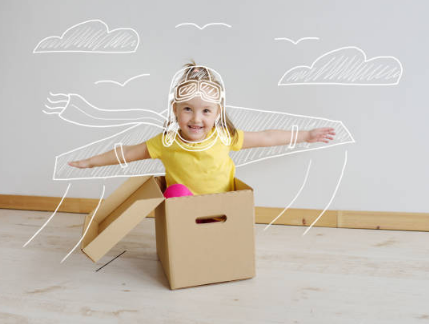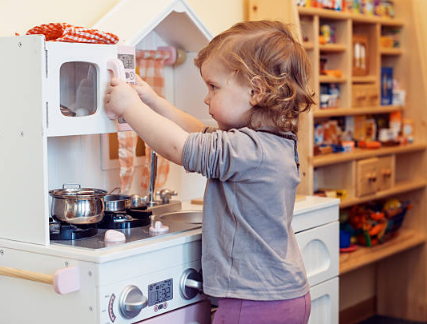Play is perhaps the most important activity for young children. This is their “job”, their main occupation, and how they learn! Even though the process may not be obvious, learning happens all the time for young children. They learn by exploring the world around them, interacting with the people they meet, and trying things they encounter.

Toddlers Learn From Each Other
Children learn from each other when they play with their siblings and friends. When problems, challenges, and conflicts arise, they come up with ways to solve them.
When your child plays in small groups made up of different ages, he has the opportunity to learn in two different ways: first, by imitating the behavior of older children, and second, by “teaching” younger or backwarder children.
Toddlers learn by doing
Learning is an active process. The more hands-on experience your child has, the more curious and capable he will become. Children are fascinated by the work adults do – cooking, doing chores, and fixing things. What’s more, these real-life tasks have tremendous learning value for children. So give your child his own small bowl of pancake batter and a child-sized broom so he can help sweep the floor.
Outdoor activities – running and climbing – are essential for healthy physical development, and it is also an opportunity for him to explore nature.
Young Children Learn Through Creativity and Imagination
You can further expand your child’s learning opportunities by placing materials in your home that encourage them to express their ideas. Some good materials include:
- Paper, pencils, crayons, scissors, glue and tape for drawing, writing and building
- Cardboard boxes and other common items
- Shelves with paints and watercolors
- Water, sand, plasticine and clay bring the senses
- Bricks and Lego bricks
- Dress up clothes, hats, and props

Young Children Learn from the Adults in Their Lives
Your life of unconditional love and support is essential to your child’s growth and development. This relationship provides your child with the sense of security and positive self-esteem they need to achieve their goals and to learn. With emotional support, you can help your child get the most out of play (and thus learning) by following these suggestions:
Be specific and supportive. Telling your child that “you have to share” doesn’t help much. The best-case scenario is that when you’re watching from the sidelines, she’ll cooperate. But if you guide her through the turn-taking process, she’ll learn more about how to share next time.
Help your child become a good observer. Children learn by actively studying the world around them. If you go for a walk with a 3-year-old and come to a construction site, stop to watch and exclaim, “Wow! See how big the wheels of that dump truck are to share her interest in the activity.”
Set an example of positive behavior. One of the most effective ways for children to learn is to follow your example. This process occurs spontaneously and almost unconsciously. For example, when your child sees that you read a lot, she will want to read and be read to. Reading is one of the most important things you can do with your child!
Use positive language. Everyone reacts better to positive words than to negative ones. Don’t give orders or prohibitions (“Don’t throw the ball over there!”). Instead, suggest what your child can do (“That’s a good place to throw a ball”).
Play is the work of childhood. It’s how your child learns about the world and how to get along with it. When you support your child in this challenging work, then your child’s work really becomes child’s play.

